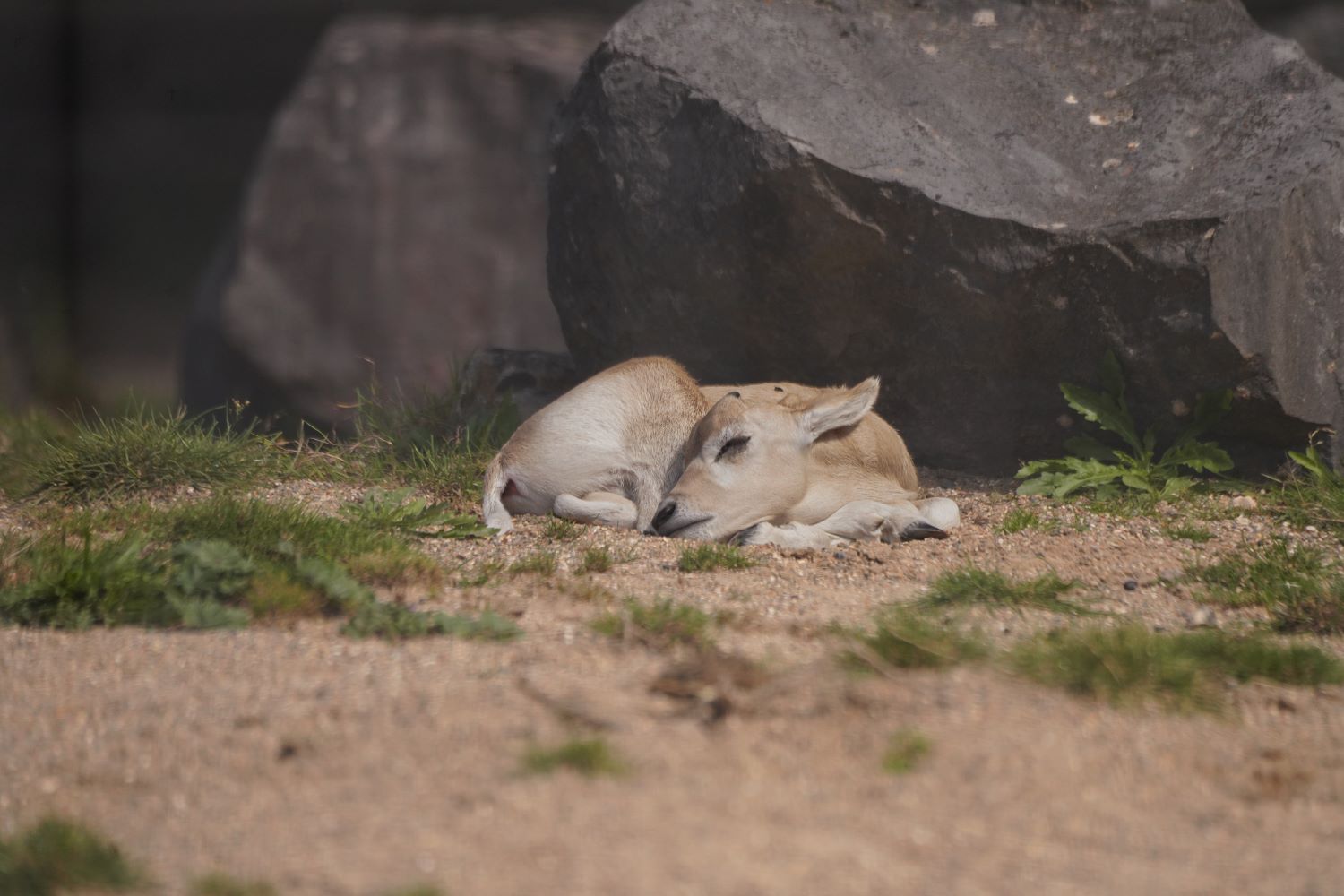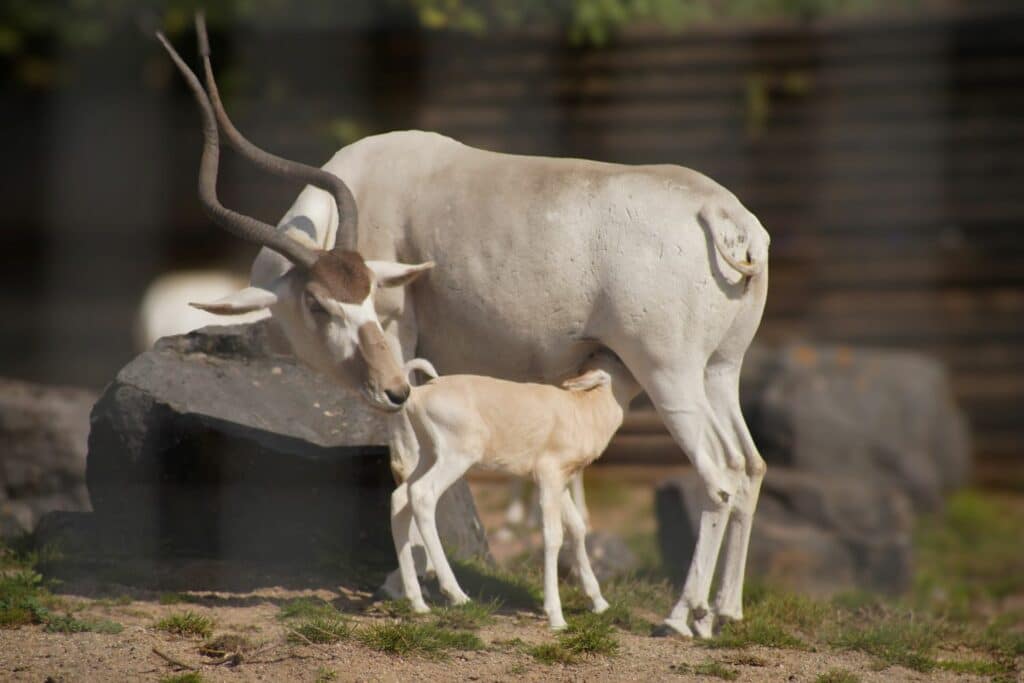Meet our adorable new addax calf!
September 19, 2024
September 19, 2024

We’ve welcomed another Critically Endangered calf at Marwell Zoo following the birth of an adorable addax calf on Friday 13 September.
Mother, Amelie, and father, Tamerisk have previously had three male calves together and keepers have confirmed the newest addition is also male.
The calf, who has already been out in the paddock exploring with his parents, is reported to be doing well and gaining in confidence daily.
Zoe Newnham, senior animal keeper, Hoofstock, said: “The new addax calf was born to mum Amelie and dad Tamerisk and is their fourth calf together.
“He is doing really well and is very confident and inquisitive, and a great addition to our herd here at Marwell.
“The conservation of addax is especially important as the species is listed as Critically Endangered on the International Union for the Conservation of Nature (IUCN) Red List, with only 30 -90 mature individuals left in the wild.
“Marwell works with addax both in the wild, and here at the zoo by being part of the EAZA Ex-situ Species Programme (EEP) , which our calf is now the newest member of!”

Females are pregnant for eight to nine months after which time they give birth to a single calf.
The calf is normally left hidden in vegetation whilst the mother grazes with the rest of the herd, returning to feed as needed.
It is estimated that there are only 30 to 90 mature addax left in the wild so this new arrival is incredibly important for the species.
Once widespread across the Sahelo-Saharan region of Africa they are now only known to be present in a small area of Niger with numbers continuing to decrease.
The IUCN Red List notes that “the species is at serious risk of becoming extinct in the wild” as a result of hunting, drought, farming pressures and oil exploration.
Addax are adapted to living in hot, dry environments and have a pale coat to reflect the heat. Their large hooves spread out to help them move in sandy habitats.
Marwell is one of just three zoos in the UK that houses addax and manages protected areas in Tunisia where addax have been released.